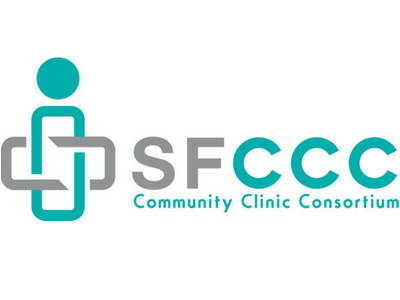NHC SF Member Blog: Breaking the Cycle
Hi y’all, my name is Jasmine (she/they). I am originally from Houston, TX and moved to San Francisco to serve as the Food Insecurity Coordinator and Community Health Liaison for the Homeless Prenatal Program (HPP), a nonprofit organization based in the Mission District neighborhood of San Francisco whose goal is to work alongside the families they serve to break the cycle of childhood poverty and family homelessness through advocacy, intensive support programs, wellness programs and education.
Of the over 7,000_unhoused people in San Francisco, pregnant people and families make up over 200 (although this number is likely higher due to under reporting) . Infants born to unhoused prenatal parents are more likely to experience preterm delivery and low birth weight (LBW). Homeless Prenatal Program helps deliver the support these parents need by utilizing a housing-first approach. In addition to supporting the community with housing, whether it is deposit assistance, calling shelters for availability, or providing hotel rooms for families who are facing being unhoused for the first time, HPP supports pregnant and low-income parents by providing much-needed community support that would otherwise be too expensive. HPP’s Wellness Team hosts weekly groups and classes like prenatal and postpartum support groups, playgroups, and infant feeding classes. HPP’s founder, Martha Ryan, modeled the techniques HPP uses after techniques she saw utilized when working as a nurse in refugee camps abroad. Using the Strengthening Families Protective Factors Framework as the foundation of their case management work, HPP seeks to increase the protective factors families have to empower them and break the cycle of poverty for their families.
One of the protective factors I have had the opportunity to see in action is how HPP provides clients with Concrete Support. Every Friday HPP hosts a food and diaper distribution, where over 400 families come and pick up food, diapers and other items requested by families. Another way concrete support is given to clients is by the intensive case management staff and client services team. While serving with client services I have listened to client stories and helped support clients with navigating the many resources available in San Francisco. Unfortunately, although there are resources available, many people are unaware they exist and my service and the work that HPP does highlights just how important that role is.
My favorite part of HPP is that over half of its staff are former clients. HPP understands how powerful and valuable lived experience is and it is one of the reasons why HPP started the Community Health Worker Training Program, which allows mothers that have not previously been employed or who have not been employed for many years to go to school and gain work experience in the community health sector. 92% of the Community Health Worker program alumni become employed within a month of graduating. This highlights just how important education and employment are when it comes to breaking the cycle of poverty.
My service at HPP has further taught me the importance of supporting people holistically. Providing only housing, counseling, or income is not enough. People are complex and need more than just housing and money to live full, self-sustaining lives. We need a community that understands us. We need support of all forms. Hearing the optimism in clients’ voices after speaking with them or seeing how truly happy and empowered former clients are now makes me wish that everyone had an HPP in their lives. Looking beyond my service year, I hope to work towards finding systemic solutions that provide this supportive infrastructure for all people.
About the Author:
Jasmine Khademakbari (she/they) is one of the 2022-2023 NHC San Francisco AmeriCorps Members, where she served as the Food Insecurity Coordinator and Community Health Liaison at Homeless Prenatal Program.


